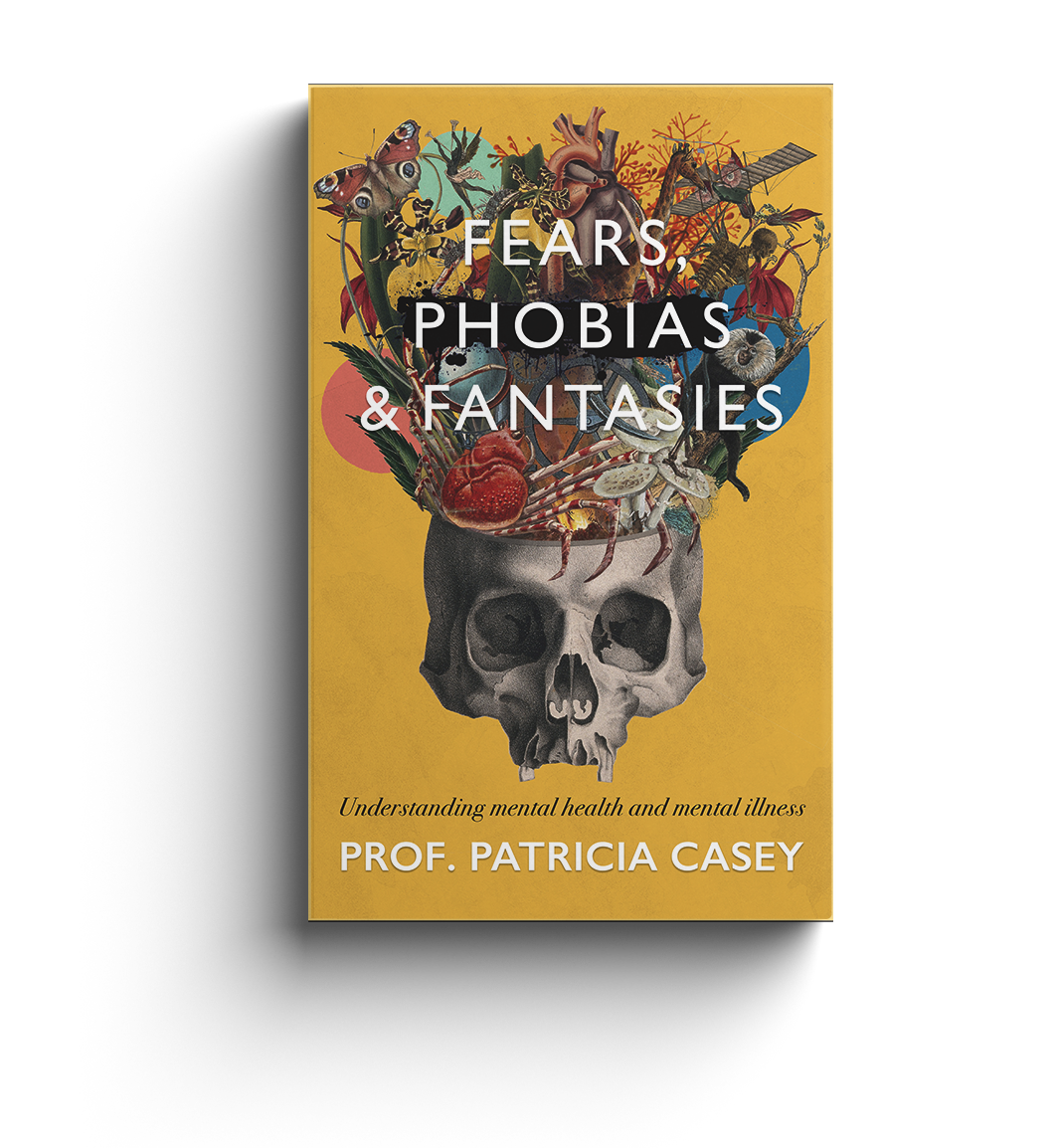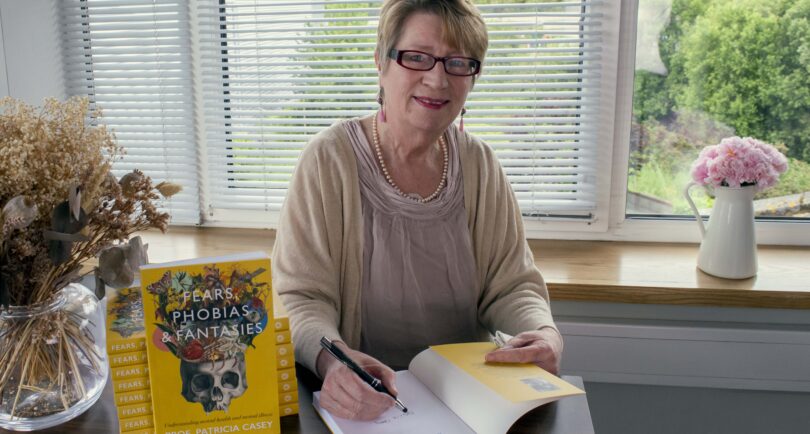Personality disorders – an expert guide to unravelling the myths and what to do when your loved one has a PD
There is much debate within the psychiatric profession about personality disorders, with some even doubting their very existence. Professor Patricia Casey examines the topic in her latest book.
During the Trump presidency, there was much debate about the psychological health of the then president, with numerous articles penned by those qualified, and not-so-qualified, musing on whether or not he had a personality disorder (PD). The term is entrenched in our common parlance now, and is much bandied about by us amateurs, particularly when discussing bad bosses, bad relationships and the behaviour of fractious family members. But what exactly is a personality disorder?
It is a question addressed in a new book by Professor Patricia Casey, a columnist for this paper and professor emeritus of psychiatry at UCD. The book, Fears Phobias & Fantasies is intended as a complete guide to mental health and mental illness — and offers guidance on how to access mental health services as well as explain the gamut of mental and psychiatric disorders.
“A personality disorder is a condition in which an individual constantly has difficulties in their relationships with other people,” says Casey. “And the people are not just those close to them, but those that they come into contact with in daily life.
“Many people have difficulties in dealing with those close to them, particularly if relationships are fractured, but to have a personality disorder, the effect relates to how you deal with other people as well — colleagues at work, acquaintances, neighbours — so it is not just in the home situation that one would see a personality disorder.
“Typically it would be the kind of person who constantly falls out with people, alienates people, annoys people. Doesn’t talk to people and blames all of the other people, rather than thinking, ‘hang on a minute, why am I alienating so many people, maybe it is something in me?’”
But if a person with a PD has no insight into their condition, how do they come to be diagnosed? What brings them to a psychiatrist in the first place?
She adds: “They come to us with other conditions. Often they present with low mood because they don’t have any friends. They might attribute their lack of friends to being socially anxious or something of that kind. Many of them come with a lot of anxiety as well. When you go in to it and assess the things that they are complaining about, and particularly assessing their relationships, you find that they have these issues in myriad ways in myriad relationships.”
The book lists the various personality disorders and outlines how for all but one, there is no treatment. So what, really, is the point of diagnosing someone with a personality disorder?
“Besides having a label, it will give you a clue to the other prognosis,” says Casey. “For example, if you’re phobic and you have what’s called dependent personality disorder, your outlook and response to treatment is going to be much poorer than if you are just phobic without the personality disorder. Similarly, if you have got a depressive illness and you have also got an obsessional personality, your response to treatment is going to be somewhat less than when you didn’t have the PD.
“So the purpose of making the diagnosis is to give a clue as to the prognosis.” The exception, in terms of treatment and also of patient insight, is emotionally unstable personality disorder (EUPD), formerly known as borderline personality disorder.
Casey says: “When they do their research, as people often do now before they go to a psychiatrist, they will see that it can often resemble EUPD. And I have had a few people come to me like that. They have low mood and they self harm, they feel alone and that nobody cares about them. They can be very impulsive. If they feel a negative emotion they often take an overdose or cut themselves repeatedly, and their mood fluctuates very rapidly, from day to day and sometimes from hour to hour. Some present primarily with an eating disorder.”
And what causes EUPD? “Most commonly it is linked to sexual abuse, physical abuse and bullying in childhood. That is the most common antecedent in the history. One of the main causes is abuse and bullying of various sorts in childhood.”
The disorder has been the subject of much research and attention in the psychiatric profession, leading to breakthroughs in treatment. Dialectical behavioural therapy, which Casey describes as “a cross between cognitive therapy and mindfulness”, has proven effective in controlling the impulsivity and the mood swings. And for the other disorders, Casey also offers hope, as symptoms of personality disorders tend to diminish over time.
She says: “Personality disorders are mostly a problem for those up to their 40s or thereabouts. A historical account in somebody who is 70 may indicate a PD, but mostly they modify. With most of these they do improve over time, even without intervention.”
Experts are not definitive on the causes of PD, but it is thought there may be a genetic component to some — such as antisocial and psychopathic PD. For others, as aforementioned with EUPD, there is a history of childhood abuse, violence, bullying or neglect that impacts how relationships are formed later. People with personality disorders can suffer greatly and Casey also points out that not everyone with a personality disorder is an unpleasant person.
“For example, there is obsessional personality disorder which is one of the most common types, and these people are very diligent, hardworking, people but they are very rigid and they annoy people and drive people mad because they are so inflexible and so rigid.”
Does a diagnosis of personality disorder help, particularly in terms of helping family members understand the behaviour of their loved ones?
“It can be a double-edged sword,” she says. “It may help family members understand, certainly EUPD does, and some of the other labels may do. For example, if someone has a dependent personality disorder and you are a loved one and they depend on you to do everything, you can take steps to alter your behaviour towards them so you don’t reinforce their dependence. So, to that extent, it does help.
“On the other hand, it can be very stigmatising also, to have a label of a personality disorder. It suggests a flaw and a weakness and that is very stigmatising for some people.”
What advice does she have for loved ones of those diagnosed with PD? “They certainly shouldn’t reinforce any of their behaviour. If they are someone from the dependent group or even the emotionally unstable group — they are often sometimes very dependent as well, they may make 10 telephone calls a day because they are afraid of being abandoned. It is best not to respond to that. Be very firm and maybe encourage them to seek help, but in the knowledge that very little can be done to help other than shift the burden from the subject matter of the dependent person’s need on to the psychiatric service. Otherwise, you set strict boundaries and limits to the behaviour.”
The whole area of personality disorders, is, as Casey acknowledges, hugely controversial. There are experts who don’t believe it should be recognised as a psychiatric disorder and that the behaviours are a reflection of who people are and their attendant behaviour. She also adds that in Ireland, unlike in the UK, you cannot be admitted to a psychiatric hospital compulsorily if you have a personality disorder.
“Even if you are constantly assaulting others because you are a psychopath, you still cannot be admitted compulsorily because it is recognised that there is very little treatment, and that it is controversial.”
However, those seeking civil annulments of marriage on the grounds of personality disorder of a partner have been successful. Next year, the International Classification of Diseases, maintained by the WHO, will be revised to remove all PDs other than EUPD, and will instead introduce a ‘personality problems’ category.
Casey says this is problematic in that it is “potentially pathologising ordinary difficulties in our relationships that we all have”. Clinically, the categories will persist, she says, “simply because we like labels”. And what of narcissistic personality disorder, the most controversial of them all?
She says: “Narcissistic personality disorder has been quite controversial down the years because some research suggested it wasn’t a true condition in itself, that it was a mixture of several different kinds of personality disorder, and that as an entity in itself, it didn’t really exist.
“It is popular — books have been written by narcissists about the subject so it does get a lot of publicity. There are a lot of personalities who have been linked to it which gives it even more prominence than would otherwise be the case. There are these self-aggrandising people who have a huge sense of their self worth. But in clinical practice it is quite rare — I have not seen any people with NPD in my career.”
Read the original article here.
 Fears, Phobias & Fantasies – Understanding mental illness and mental health by Prof. Patricia Casey is available here.
Fears, Phobias & Fantasies – Understanding mental illness and mental health by Prof. Patricia Casey is available here.

